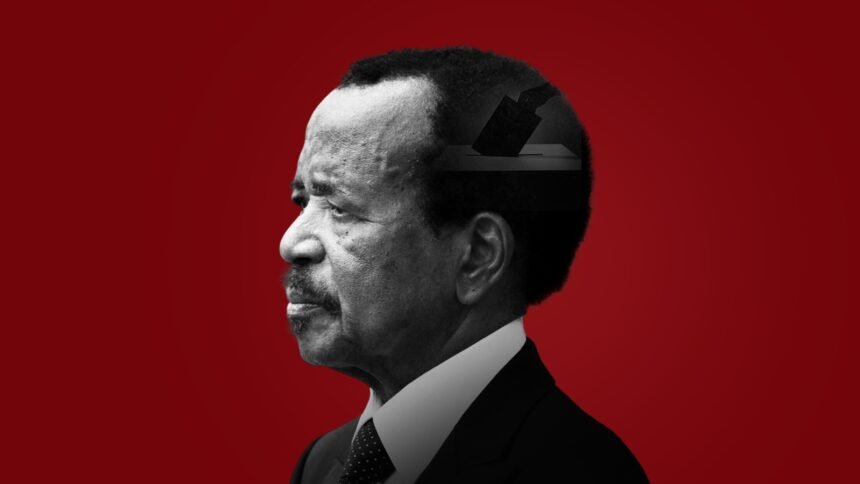In a continent where the word “transition” often feels like a foreign import, Cameroon’s political scene just delivered another déjà vu. President Paul Biya—yes, he’s still in office—has announced his intention to run for re-election in 2025. At 92 years old and already Africa’s second-longest-ruling leader, Biya appears undeterred by age, fatigue, or critics who suggest that perhaps, just perhaps, it’s time to pass the baton.
Biya’s decision has reignited fierce debate in Cameroon and across the region. Supporters hail him as a beacon of continuity in turbulent times. Detractors call him a relic of authoritarianism, sustained more by state machinery and military loyalty than by genuine democratic consensus.
Let’s rewind. Paul Biya became president of Cameroon in 1982—back when Michael Jackson’s Thriller was on the charts, and most of today’s Cameroonian voters weren’t even born. In his 40+ years in power, Biya has seen six French presidents, seven U.S. presidents, and nearly every other African leader come and go. His political strategy has relied less on charisma and more on calculation—ruling from the shadows, avoiding public engagement, and relying on an ironclad administrative state.
In recent years, Biya has made fewer public appearances. Much of the governance, critics say, is carried out by close allies and behind closed doors in Yaoundé, with the president’s most visible act often being his routine trips to Switzerland for “private health visits.”
Yet somehow, Biya remains a fixture. And with his latest announcement, he seems determined to stretch the elastic of longevity one more time.
The announcement was choreographed with the usual optics: party faithful waving banners, national TV coverage, and scripted endorsements. The ruling Cameroon People’s Democratic Movement (CPDM) presented Biya’s bid as “a historic necessity” and “a pledge to national unity.” State media hailed him as the “Father of the Nation,” glossing over the secessionist crisis in the Anglophone regions, accusations of human rights violations, and growing youth disenchantment.
In the northwest and southwest regions—Cameroon’s Anglophone zones—calls for independence have morphed into armed rebellion, exacerbated by what many see as Biya’s refusal to address their grievances. The military’s crackdown has been brutal, with thousands killed and hundreds of thousands displaced. Far from resolving the crisis, Biya’s prolonged rule is seen by many as the root of the impasse.
And then there’s the economy. Cameroon’s growth is uneven, weighed down by corruption, unemployment, and poor infrastructure. Oil revenues have provided some cushion, but development has remained sluggish. A new generation of Cameroonians, more connected and vocal than ever, is increasingly rejecting what they see as an ancient regime clinging to relevance.
Internationally, Biya’s announcement puts Western partners in a tight spot. France, Cameroon’s former colonial ruler, has often looked the other way while emphasizing “stability.” The U.S. has occasionally voiced concern, especially about human rights abuses, but Biya’s cooperation in counter-terrorism operations—especially against Boko Haram in the Far North—has granted him a certain diplomatic impunity.
But even as elites rally around the president, whispers are growing louder. Can Biya physically and mentally sustain another term, which would see him reach 99 by the time it ends? And if not, who is really running the country?
That question has become especially urgent as rumors swirl about succession plans. No clear heir has emerged, though some speculate that key military and security figures may be positioning themselves. Others worry that a post-Biya vacuum could unleash instability, especially given the pent-up frustrations among youth and opposition groups.
The political opposition, fragmented and often harassed, is trying to regroup. Some leaders have already condemned Biya’s move, calling it a threat to democracy. “Cameroon is not a monarchy,” one opposition figure said. “We need renewal, not recycled power.”
But challenging Biya at the ballot box has always been an uphill battle. Electoral commissions are stacked with loyalists, and voter suppression is widespread. As one analyst put it, “Elections in Cameroon are like theatrical performances: the script is already written, and the ending rarely surprises.”
Still, Biya’s decision to run again isn’t just about another term—it’s about the future of a country trapped in political stasis. For many Cameroonians, this is no longer a question of who leads, but how much longer they can endure the same old tune.
As the 2025 election looms, one thing is clear: Paul Biya isn’t stepping down. But Cameroonians are stepping up, raising their voices, and asking whether it’s time for history to take a new direction—before history itself takes the decision out of everyone’s hands.










